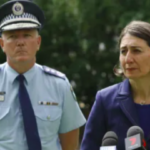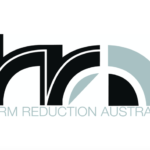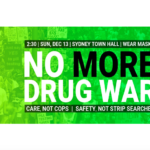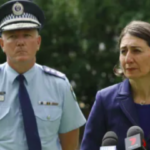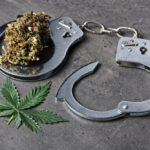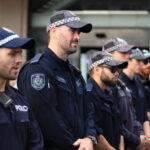A Violation of Civil Liberties: NSWCCL’s Elizabeth Htwe on Criminalising Drug Use
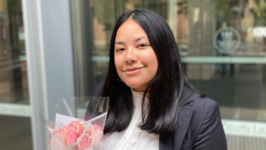
Since the drug-related deaths of two young Australians at the Sydney Defqon.1 festival in September 2018, the NSW Liberal Nationals government has understood that this state’s current approach to illicit substances isn’t working.
Indeed, by the end of that music festival season, five young people had died at NSW events.
However, in an out-of-date impersonation of former US First Lady Nancy Reagan, all NSW premier Gladys Berejiklian has been able to muster in response is to declare that young people “just say no” to drugs.
Well, that and the strengthening of the current heavy-handed law enforcement model.
Following the deaths at Defqon, the premier convened a festival safety inquiry headed by the NSW police commissioner. She warned it not to consider pill testing. And it resulted in a push to create more crimes, including the offence of drug supply causing death, which has led to havoc in the US.
As the death toll rose over the summer of 2018-19, Berejiklian then tried to dismantle the entire festival industry: a move that failed.
While just recently, her cabinet has been meeting to consider weak versions of progressive recommendations, which are only serving to delay the inevitable.
Not a criminal issue
Berejiklian established the Special Commission of Inquiry Into the Drug Ice, which recommended the decriminalisation of the personal possession and use of drugs in NSW. And following its inquiry into the deaths at state music festivals, the NSW Coroner recommended the same.
These days, considering decriminalisation as the way forward is the norm. Launched by the Uniting Church in 2018, the Fair Treatment campaign saw over 60 organisations calling for drug decriminalisation in this state, including the NSW Bar Association and the Law Society of NSW.
The entire nation of Portugal decriminalised the use and personal possession of all illicit substances back in 2001. The ultra-conservative and quasi-judicial International Narcotics Control Board lauded this policy and its impacts as exemplary in December 2015.
However, on 14 December this year, when the Berejiklian cabinet met to debate a fining system for the personal possession of illegal drugs – an inadequate alternative to decriminalisation, which fails to remove criminal sanctions – government ministers couldn’t even come to an agreement on that.
The late days of prohibition
In response to Berejiklian dragging her feet on the drug issue, the No More Drug War rally met at Sydney Town Hall on the day prior to the government meeting to deliberate upon the fining scheme.
Protest organisers were demanding real drug law reform by way of removing criminal sanctions around personal use completely.
NSW Council for Civil Liberties’ member Elizabeth Htwe addressed the crowd of demonstrators. As part of the NSWCCL Human and Civil Rights Action Group, Htwe asserted that the continued criminalisation of drug use is an infringement upon the civil liberties of all NSW citizens.
Sydney Criminal Lawyers spoke to just admitted lawyer Elizabeth Htwe about the benefits of pill testing, why Berejiklian’s favoured “just say no” approach doesn’t work, and how the state government is simply providing solutions that reinforce the existing law enforcement model.
Firstly, the state government has invested a lot of money in searching for an alternative method to the current way of dealing with personal drug possession in NSW. The Special Commission into the Drug Ice recommended decriminalisation.
Last week, the Berejiklian government met to debate on a watered-down version of its original already watered-down version of the commission’s recommendation.
But the cabinet couldn’t even come to a decision on that and gave up.
Elizabeth, what does leadership like this mean in terms of moving forward in this state?
It doesn’t bode well for drug law reform in NSW. We’re of the belief that if the government isn’t essentially searching for alternative methods, then it’s looking to support the current model.
There have been a lot of recommendations for the decriminalisation of personal drug use, which have included from the Special Commission Into the Drug Ice and the recent coronial inquest.
But we find that these watered-down versions of decriminalisation the government has been debating aren’t real alternatives.
So, these fining schemes are about supporting the status quo?
Pretty much. At the moment, they have a version that sees people fined three times, and then charged.
But it’s just a way of delaying the inevitable charge, because if you think about the way in which people consume drugs, they’re not going to stop after a couple of fines. They’re more likely to continue.
So, it doesn’t really address the heart of the issue, and nor does it adhere to the recommendations that were made.
As you’ve just mentioned, the twice-removed reforms that the Berejiklian cabinet were debating consisted of an initial fine, followed by two more fines within the same 24 month period, and being found in possession of a personal amount of drugs for a fourth time would result in charges.
There was also a dob in your dealer clause, meaning those who turn in someone else could receive reduced penalties. Elizabeth, what are your thoughts on this dobbing in your dealer provision?
The dob in a dealer clause is unnecessary, because when you look at the law, there’s already a reduction in penalties for people who assist police.
So, normally, if you’re charged with personal drug use, law enforcement assures that you end up getting a reduced sanction if you cooperate in that way.
The idea that you can dob in your dealer and it reduces your penalty is obsolete, because this already exists as a mitigating factor. It’s totally unnecessary.
You spoke at the No More Drug War rally at Sydney Town Hall on 13 December. You mentioned that the NSW Council for Civil Liberties is opposed to the criminalisation of personal drug possession and use on the basis that it encroaches upon basic rights and liberties.
Can you elaborate on why this is the case?
The criminalisation of personal drug use encroaches especially upon civil liberties.
We’re of the opinion that a person can ingest any substance of their choice, whether that be to alter mood, stop pain or promote pleasure provided that it doesn’t cause harm to others.
We believe that criminal sanctions should only apply to behaviour that harms society, and that’s not the case with drug use.
There are high functioning law-abiding citizens who take drugs and cause no harm to others. And sometimes there is no harm to themselves.
Everybody should have the ability to do what they can without any pressure from government laws that are unjust.
Young people these days are confronted with the prospect of saturation policing, drug dogs and potential strip searches when attending events like music festivals. This certainly wasn’t the case twenty years ago.
What sort of effect do you think this is having on young people, as well as the broader public?
It creates harm and fear in the person targeted. When it comes to festivals, the recent coronial inquest into deaths at music festivals found that the saturation policing, coupled with the drug dogs and potential strip searches is having an adverse effect.
This is because it causes so much stress amongst some festivalgoers that it leads to them ingesting all of their drugs at one time.
But in terms of the broader public, drug dogs and strip searches don’t just occur at music festivals, they have them in other public areas, like transport. And we’re concerned about this, because it’s quite draconian.
The Special Commission into the Drug Ice and the NSW Coroner recommend decriminalisation. You also support the removal of offences that apply to personal possession and use of drugs.
In your opinion, what impact would decriminalisation have?
Well, Portugal decriminalised personal drug use in 2001. They no longer have criminal offences for people who use and possess drugs.
The Portuguese found that there was a dramatic drop in overdoses, HIV infections and drug-related crime.
Portugal is also the first nation to have destigmatised drug use. They’ve changed the culture around drugs, so people who use drugs are no longer treated as second class citizens.
So, not only did it have an effect on convictions, but it also had an effect on the culture of drugs and how they’re perceived in Portugal.
Over the 2018-19 summer, five young people died at NSW music festivals in drug-related circumstances.
Despite widespread public and expert calls for pill testing, premier Berejiklian has repeatedly refused to even consider this harm reduction approach to making illicit drugs safer.
What’s your opinion on pill testing?
Pill testing should be done. We should look at how it’s done in other countries, and how it was done at two Groovin the Moo festivals in Canberra.
People continue to bring drugs to festivals, despite whatever measures are taken by police. So, if you have pill testing, a person is able to know the strength of drugs and whether they’re dangerous.
It’s a warning for people who do have drugs on them. They’re able to be informed of what they’ve got, and what they’re about to consume, so then they’re actually less likely to take it.
The alternative is that people are consuming drugs that they don’t really know the makeup of.
And lastly, Berejiklian won’t consider pill testing or decriminalisation because she advocates the “just say no” to drugs approach, which is what the criminalisation of personal drug use relies upon.
In your understanding, why doesn’t “just say no” work?
The “just say no” approach doesn’t work for any area of prohibition, as it neglects human nature.
Experimentation is one of the big reasons people take drugs in the first place. Just say no is the wrong approach to this issue.


